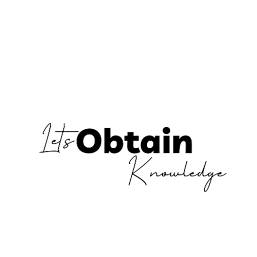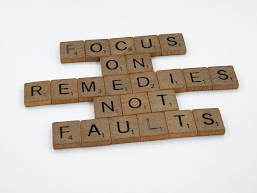The most common psychological problem in the world is depression. It's estimated that approximately 3 million people suffer from some form of mental health disorder. According to a report released by the World Health Organization, in 2004 depression was the second leading cause of disability worldwide. This is largely due to increased prevalence of depression among women and younger demographics.
Depression is a very serious issue for those who have a family member or friend suffering from it. Some studies predict a woman will be diagnosed with depression within their first 20 years of life.
There are many factors that can affect your chances of developing depression in yourself. One of the biggest threats is being the victim of stalking. As there tends to be a stigma attached to people who have mental health problems or who have a history of substance abuse, they may feel like they have no other option than to isolate theirselves. Therefore, social isolation tends to play a huge role in causing depression in others. In my own experience, I would often feel isolated and rejected by friends and family because of my depressive symptoms. Being lonely was what caused me to stay home with my parents for long stretches of time.
Depression is a very real problem and one that needs to be addressed. But it doesn't have to be an entire tragedy. With proper treatment, one of the best ways to prevent the development of mental health issues is to prevent them from impacting anyone else.
What You Need to Know About Stalking?
Stalking is a crime but it happens every day. Sadly, it's a reality for everyone to face and not just those suffering from severe mental health issues. Here a question arises that,
what are the signs and symptoms of stalking?
According to the National Consortium on Sexual Abuse (NCSASA), stalking is usually associated with five symptoms. These include persistent unwanted communication (i.e., phone calls and mail), persistent inappropriate behavior (i.e., unwanted gestures and comments) (e.g, sending unsolicited gifts), harassment of intimate partners (i.e, sexual advances, messages), use of physical appearance and body language to disguise the behavior, and controlling the environment and the surrounding events that may provide an outlet or place for the person to receive unwanted attention or solicitude. This is usually done with the aim of making someone feel vulnerable.
How To Deal With Depression?
Depression is a hard thing to deal with. There may be times when your thoughts are clouded with negative thoughts, you're feeling sad, or you feel trapped in a sense. What often happens is that the only way out of this is to get help to prevent the development of further complications. Thankfully, though, the majority of people who suffer from depression don't actually end up taking their feelings seriously. They hide these feelings; they lash out at others, they become bitter and violent. Despite all this, it doesn't mean that a single individual should avoid getting help because they are scared or simply don't know where to go.
However, once diagnosed, a lot of us who struggle with depression decide that therapy and medication are too overwhelming for them to handle. Furthermore, other treatment options tend to take longer than other types of care. Many people find that going to a psychiatrist or psychologist is either too expensive or too difficult for them to afford. Instead, they opt to see a therapist for brief periods of time.
It's important to remember that depression is a biological phenomenon and therefore requires specific treatment. People need different levels of care and treatment depending on their particular situation. For example, if your mother suffers from depression then you would probably opt for more intensive support from your father than you would if your brother was struggling with the same issue. On the flip side, if your grandparents are having trouble coping with their depression, you might want to watch over them closely and make sure they aren't doing anything that can affect them negatively. If your aunt suffers from generalised anxiety disorder, you might consider talking to her about her feelings before they become too much to cope with.
Depression has a tendency to linger around and keep your mind occupied. It often presents itself as a chronic illness. It causes you to think constantly about certain things. For example, I tend to think of my condition as a constant battle with myself. I worry about how I'm looking and whether others are judging me correctly. When I'm feeling down on myself, I can see myself as not being good enough, worthless, useless, or unloved. It's easy to say that my thoughts and emotions are often triggered by an external factor such as bad news or bad company or bad relationships. A lot of what goes on inside me is affected by these external factors.
Luckily, there are a lot of different approaches to dealing with depression. While there are plenty of drugs, medications, and therapies available for people with depression, it's important to remember that they work only so well in isolation. Medications usually require a prescription and are very costly. Drugs generally do not cure any aspect of depression. Most people who deal with depression choose to take medication rather than using drugs alone.
One of the main reasons people suffering from depression choose to get help is because they feel it makes their lives easier. However, taking medicine alone does not work and may even result in adverse effects. People with mental health disorders also don't likely to comply fully with prescriptions and treatment plans.
Depression is a challenging problem to deal with . Luckily, there are a number of different effective treatments available within the field of mental health. The main approaches for treatment have been based on traditional methods and are still used today. The two main types of treatment include psychotherapy and medication therapy. Psychotherapy consists of various forms of talk therapy that help the patient to understand the nature of his/her condition.
Medication therapy involves active or passive administration of medication. Traditional medicine uses substances that make the brain work by stimulating nerve cells in the brain and nervous system. However, recent research indicates that this method of drug therapy may not be as effective as originally thought. Research suggests that antidepressants and antipsychotics are ineffective against mild treatment of depression. In extreme cases, these drugs can lead to death because they produce significant neurological damage.
Medication therapy can be divided into two broad categories. First category consists of drugs that contain a stimulant ingredient. Examples include amphetamines, sedatives, tranquilizers, barbiturates, benzodiazepines, hypnotics, tricyclic derivatives, alcohols and alcohols of all sorts. Antipsychotic drugs such as risperidone are examples of this type of treatment. Second category of medication therapy includes anti-depressants. Anti depressants work by reducing dopamine levels in the brain and decrease its activity. An example of this is fluoxetine. However, if these ingredients and others are combined incorrectly, they may have harmful effects. Fluoxetine, for instance, may induce heart failure, seizures, psychosis and cardiac arrest.
The importance of both traditional therapy and modern medication in treating Depression is that they both act by increasing serotonin levels in the brain and decreasing levels of cortisol which cause feelings of tension, agitation or sadness in people with mental health disorders.
Depression is treated using a wide variety of methods. Depending on the severity of the illness, patients may need different types of treatment and drugs, but both methods should be employed. Commonly therapies such as counselling, group therapy, cognitive behaviour therapy, peer groups and educational programmes are used alongside medications. Group therapy helps patients to gain support from others who are experiencing similar challenges. Cognitive behavioral therapy teaches skills in order to control behaviour. Peer groups work together to share experiences that could help those suffering from depression. Educational programmes assist both patients and doctors in providing advice and tools to help patients.
However, most successful people are self-helpers. Some people are able to identify what they need and learn to help themself, whereas others rely on medical assistance. Self-help groups are extremely beneficial in helping people with mental illness know how to cope or manage their mental health conditions. Individual therapy works by focusing on a specific area of concern such as mood and depression. Mental health clubs, yoga classes, and exercise classes offer practical help.
Meditation is another helpful approach towards improving mental health. Sitting and meditating help improve positive attitudes and help reduce bad habits. Meditation also helps people focus more clearly and concentrate less on the surrounding world and more on their mind. Overall, meditation is one of the most effective techniques to treat depression and it's a great tool to use in your everyday life to achieve better overall health and mental health. It's recommended that every person who suffers from depression should try and keep a diary.


















.jpeg)

1 Comments
Very informative
ReplyDelete